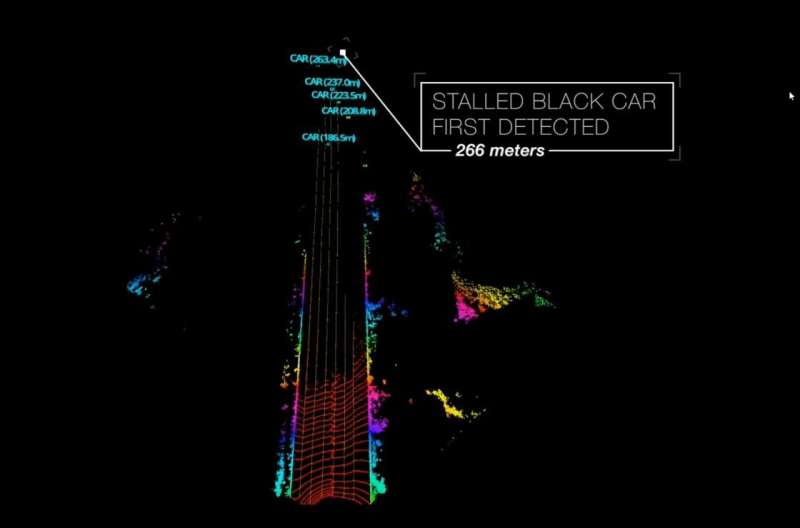June 17, 2018 weblog
Volvo likes what its self-driving weavers see in Luminar

Self-driving car news for June would not be complete without mention of Volvo. Luminar has rolled out a beefy development platform and has struck a relationship with Volvo—being that the Swedish carmaker chose Luminar to equip its self-driving cars with lidar.
Luminar is a lidar start-up. Lidar uses pulsed laser signals to detect objects. Lidar systems scan the road ahead and surrounding environment. It's regarded as a key technology for enabling autonomous cars to navigate safely in complex traffic environments and at higher speeds.
What is the difference between lidar and radar? Roadshow: "Whereas radar uses radio waves to determine the position of objects, lidar uses quick pulses of light. It's able to create point maps that, in conjunction with other sensors and cameras, can give a self-driving car a clear picture of what's going on around it."
MIT Technology Review's The Download said Thursday that Volvo was investing a "substantial" amount in Luminar. This California-based developer of high-performance lidar systems specializes in developing lidar for autonomous vehicles. The Volvo Cars strategic investment is via its auto tech fund. ("The Volvo Cars Tech Fund was launched earlier this year and aims to invest in high potential technology start-ups around the globe," said Green Car Congress on Friday.)
Lidar technology itself is the focus of more than this company. There is a crowded field of companies working on the technology, said Financial Times.
Devin Coldewey in TechCrunch said the company's "lidar tech is in many ways leaps and bounds beyond the competition."
According to an optics.org report Luminar got busy in creating a 3-D lidar data infrastructure, labeling, and annotation tools. In turn, Volvo Cars as a Luminar partner can leverage the expanded platform.
Coldewey referred to Luminar's new "perception development platform." Perception is an apt word considering the capabilities.
Rather than leaving it to the car's systems, Luminar technology is taking over some of the duties of spotting and identifying common objects seen by lidar. Luminar's founder and CEO Austin Russell told Coldewey that it was "a matter of making sure that its data was being used effectively."
A company slogan: We take the guesswork out of autonomy. Their sensors not only see where objects are but what they are, and with favorable range.
"Farther sight means more than enough time to react safely, now at highway speeds." A company release said that "Safe, highway speed commutes require better than human perception capabilities up to 250 meters into the distance in order to safely make crucial driving decisions."
Jason Eichenholz, co-founder and CTO, is an inventor on 10 U.S. patents on types of solid-state lasers, displays and photonic devices.
While capabilities take center stage, there is no sneezing at the company's attempt to offer cost advantages. MIT Technology Review The Download had this to say. "Luminar's lower prices could help bring down costs for self-driving cars to the point that they may one day make sense to sell to consumers."
The company managed to reduce the cost of the receiver, which is "a crucial component of the system, from tens of thousands to just $3 and expects to be making 5,000 units per quarter by the end of 2018."
More information: www.businesswire.com/news/home … nvestment-Volvo-Cars
© 2018 Tech Xplore



















